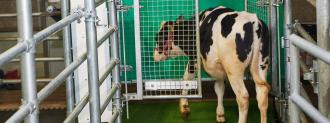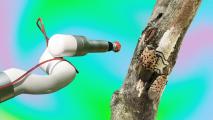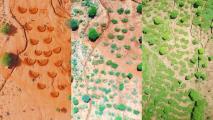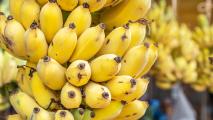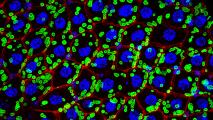To combat the negative environmental impact of cow urine, researchers in Germany and New Zealand decided to try something radical: potty-training calves.
“It’s usually assumed that cattle are not capable of controlling defecation or urination,” co-author Jan Langbein said in a press release. “Cattle, like many other animals or farm animals are quite clever and they can learn a lot. Why shouldn’t they be able to learn how to use a toilet?”
The challenge: A single cow can produce about 8 gallons of urine every day. When you multiply that by the more than one billion cows roaming the planet, you get a lot of urine — and right now, there really isn’t a good place for it to go.
“Cattle are quite clever. Why shouldn’t they be able to learn how to use a toilet?”
Jan Langbein
When cows are in pastures, their urine can contaminate water and soil and produce the highly potent greenhouse gas nitrous oxide. But if they’re confined to barns, cow urine mixes with the animals’ feces, producing ammonia, which can also affect air quality and water.
The MooLoo: To address this issue, the researchers wanted to see if it was possible to train cows to urinate in one specific spot.
They started their training by confining 16 calves in a latrine area (the “MooLoo”) and rewarding the animals with a snack every time they urinated. They then allowed the calves to roam in and out of the latrine.
“The cows are at least as quick to learn as two- to four-year-old children.”
Lindsay Matthews
At first, the calves kept going back to the latrine in the hope of getting a reward, but they soon learned a treat was only given if they urinated. To discourage urination outside the MooLoo, meanwhile, calves that had “accidents” would receive a mild spray of water.
The researchers worked with each of the calves for about 45 minutes every other day, and within a few weeks, 11 of the 16 animals were successfully trained to use the latrine.
“The cows are at least as good as children, age 2 to 4 years, at least as quick,” study senior author Lindsay Matthews told ABC News.
The next steps: Now that the researchers know cows can learn to urinate in dedicated areas, the next step is scaling up the training — and they’ve already identified two hurdles they’ll need to overcome to do that.
“Collecting 10% to 20% of urinations would reduce greenhouse gas emissions significantly.”
Douglas Elliffe
First, they’ll need to figure out how to automatically reward cows for urinating where they’re supposed to — some cow urine sensors in a latrine could help with that. They’ll also need to determine the ideal quantity of latrines based on farm size and where they should be located.
It’d likely be impossible to toilet-train every cow, but if even a fraction of the world’s cow urine was confined to latrines, it could have a significant environmental impact.
“If we could collect 10% or 20% of urinations, it would be sufficient to reduce greenhouse gas emissions and nitrate leaching significantly,” researcher Douglas Elliffe told Bloomberg. “We’ve shown proof of concept that we can train cows and train them easily.”
We’d love to hear from you! If you have a comment about this article or if you have a tip for a future Freethink story, please email us at tips@freethink.com.
